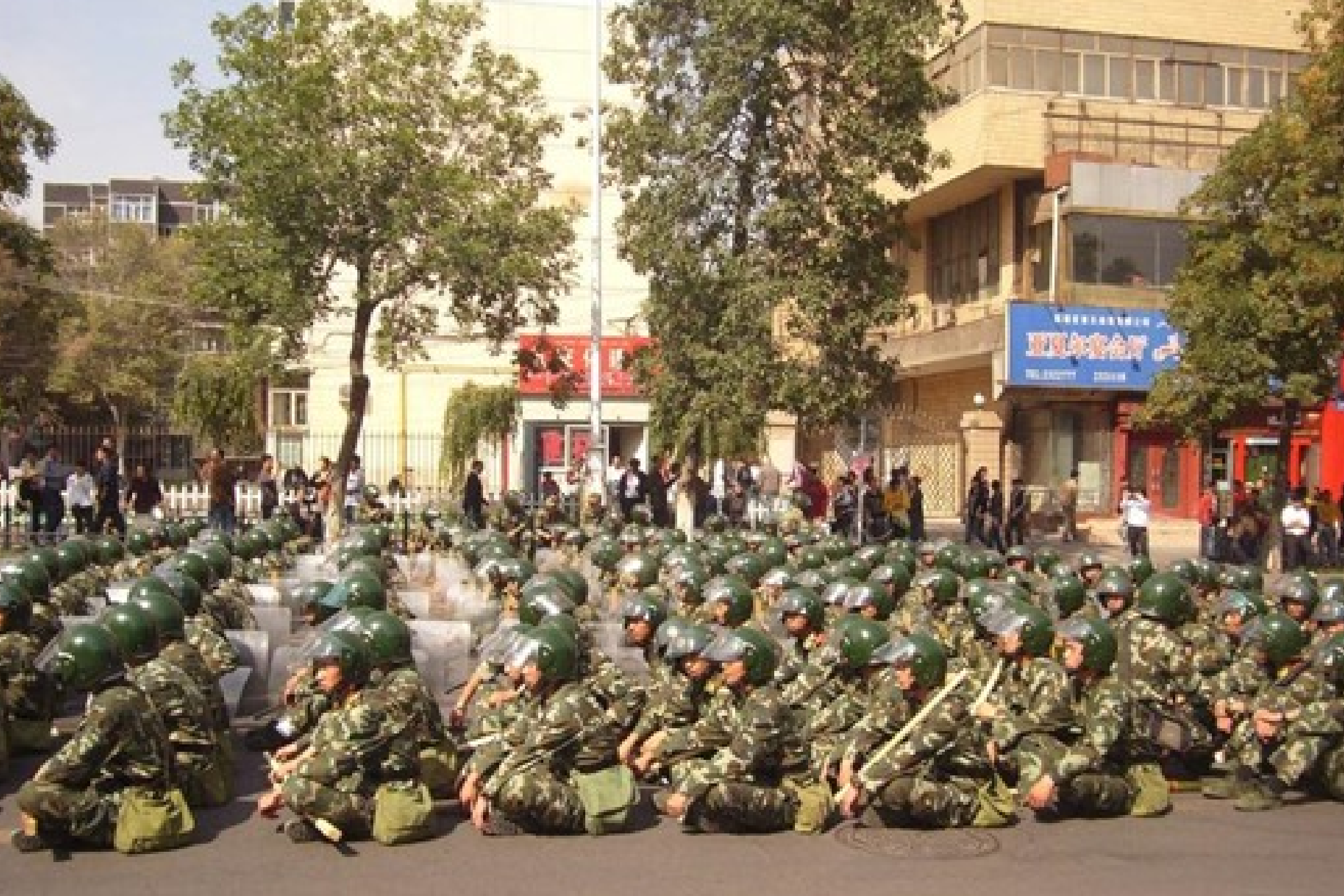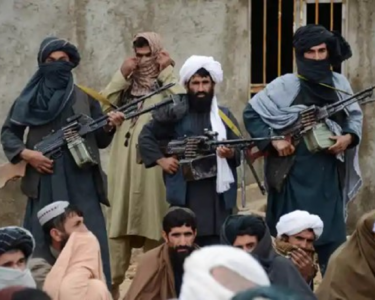China’s handling of the volatile situation in Xinjiang, marked by ethno-nationalist tensions and alleged terrorism, is subject to intense global criticism. The government’s claim that its policies are necessary to combat terrorism and separatism is challenged by numerous reports of widespread human rights abuses from human rights organizations and Western governments. Analyzing China’s approach requires a comprehensive understanding of its stated aims, their practical effects, and the various perspectives involved in this complex conflict.
The Chinese government officially characterizes the situation in Xinjiang as a war against extremism and separatism, which it blames mainly on Uyghur separatist groups. It justifies its tough measures because of incidents of violence, such as attacks on civilians and government buildings. These policies, reportedly designed to combat terrorism and bolster stability, have involved extensive deployment of security forces, increased surveillance, suppression of religious practices, and mass internment of Uyghurs and other minority ethnic groups in what China describes as vocational training centers.
China’s stated policy objectives include:
- Counterterrorism
This forms the cornerstone of Beijing’s justification for its actions. The authorities are also arguing with past instances of bloodshed and also the perceived menace of separatists Uyghurs for homeland security.
- Economic Development
Poverty and economic inequality are some of the basic factors often cited to create instability. China has been heavily investing in infrastructure programs and economic development plans aimed at improving the living standards in Xinjiang.
- Social Stability
Preservation of social stability is a basic goal in Xinjiang. The goal covers the dominant position of controlling narrations, limiting expressions of Uyghur identity, and assimilation promotion.
- Combating Religious Extremism
The Chinese government claims that policies are against religious extremism and, in furtherance of that policy, for the promotion of secular patriotic Islam, there is restriction of religious practice; mosques, and venues are destroyed, while state-approved readings of Islam are being promoted.
However, these policies have also been severely condemned by human rights organizations as well as Western governments. The allegations of human rights violations include:
- Mass Internment
The most significant accusation centers on the mass internment of Uyghurs and other ethnic minorities in what China terms “vocational training centers.” Reports from numerous human rights organizations and independent researchers detail systematic abuse, including torture, forced labor, and political indoctrination within these camps.
- Surveillance and Repression
The widespread use of surveillance technology, including facial recognition, DNA collection, and mass data collection, has raised concerns about the erosion of privacy and freedom of expression. Restrictions on religious practices, including bans on wearing hijabs and beards, and limitations on cultural expressions, are also deeply concerning.
- Forced Labor
Numerous reports allege the existence of widespread forced labor in Xinjiang, particularly in cotton harvesting and other industries. Concerns exist about the exploitation of Uyghur laborers and the complicity of international companies.
- Cultural Destruction
The destruction of mosques and other religious and cultural sites is seen as a deliberate attempt to eradicate Uyghur culture and identity.
The Chinese government absolutely denies these allegations, stating that the “vocational training centers” are actually against extremism and education and skill-building. In defense of its economic development initiatives, Beijing frames them as work to enhance the living conditions of all people in Xinjiang. Lastly, the government invokes a decline in violence cases within the last years as proof that its counterterrorism work has been effective.
However, independent verification of these claims is extremely difficult because strict limitations are imposed on the access of foreign journalists and researchers to Xinjiang. Such a lack of access to information along with the lack of independent investigation seriously handicaps any balanced judgment of the situation. This lack of transparency and accountability aggravates international concerns. Circumstances in Xinjiang are characterized by deep suspicion between the Uyghur population and the Chinese government. Although the Chinese government often appeals for national unity and requires dealing with separatism, many Uyghurs feel that their cultural identity and religious practices are threatened. This is an experience of oppression which cultivates resentment and increases the conflict’s cyclical pattern.
Xinjiang has had economic development programs undertaken by the Chinese state. Such efforts have always been perceived as a vehicle for poverty alleviation and, thus, stability. Undeniably, the existence of infrastructure development projects and investments in the sectors is obvious. Simultaneously, fears that these programs might be used for vehicles of assimilation and domination and not true forms of empowerment persist in their perceptions over distributions of benefits. According to reports, economic benefits go primarily to the Han Chinese migrants, further worsening already existing inequalities and promoting the sentiment of marginalization among the Uyghurs and other ethnic minorities. Additionally, the relationship between economic growth and mass internment camps is so inimical because it suggests that forced labor in such facilities is used to promote economic growth at the expense of human rights violations.
The economic activities undertaken in Xinjiang are unknown, and it has also imposed restrictions on independent audits, which makes the true effects of such economic policies unmeasurable. This would need economic data analysis with independent verification to ascertain whether these initiatives improve the general welfare and empowerment of all residents of Xinjiang or only serve the interests of the majority Han Chinese population.
The international response to China’s policies in Xinjiang has been diverse and varied. While some countries have condemned the human rights abuses and called for greater openness with accountability. On the other hand, most countries either kept silent or are supporters, or qualify to be supporters of China. Such diversity in reaction is indicative of complex geopolitical factors and challenges facing a unified international response on the issue. Economic and political reasons along with fears about the fallouts due to political factors have limited overt criticism from a number of governments in this regard for policies of the Beijing Government. However, concern on the part of alleged violation of human rights by such regimes in Beijing, pushed by investigations by human rights groups and independent journalism, is prompting the governments to take bold steps forward. This will be a test of the effectiveness of international sanctions and diplomatic pressure. Still, for now, to bring forth a more balanced and just solution, it will depend on continuing engagement by the international community, with focused diplomacy.
Moving forward, several factors need to be considered for a more peaceful resolution:
- Increased Transparency and Access
Allowing independent international observers access to Xinjiang is critical for a more objective assessment of the situation. This includes allowing journalists, researchers, and human rights monitors to conduct independent investigations.
- Dialogue and Reconciliation
There should be a call for meaningful dialogue between the parties: the Chinese government, Uyghur representatives, and international stakeholders. In these calls, there would be issues dealing with human rights, cultural preservation, or economic development.
- Addressing Root Causes
Tackling the underlying social, economic, and political factors that contribute to unrest is paramount. A long-term commitment in favor of inclusive governance and an empowered economy and also an acknowledgment of cultural differences shall be the starting point in this process.
- International Cooperation
Constructive engagement by the international community through diplomatic efforts and targeted sanctions will also make China accountable and transparent.
China’s policy towards the Xinjiang situation is a very complex, highly controversial issue. While Beijing presents its actions as needed for counterterrorism and counter-separatist measures, there remain many allegations of widespread human rights abuses. It is the lack of transparency, of independent verification, that makes objective evaluation difficult. The settlement has to be sustainable and peaceful, and for that reason, increased transparency, substantive dialogue, commitment towards dealing with the root cause, and international pressure must continue so that universal human rights and fundamental freedom for all people of Xinjiang can be guaranteed. Only this would help achieve the desired results through involvement by the international community coupled with targeted diplomatic pressure.


